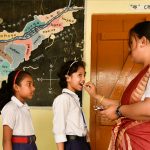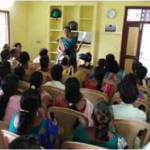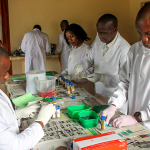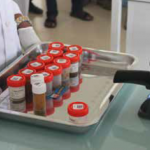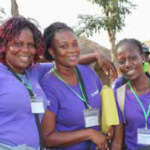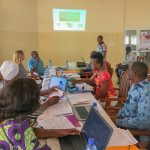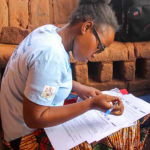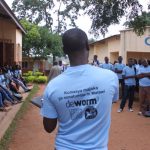Study Progress
DeWorm3 established three trial sites in Benin, India, and Malawi in strategic partnership with collaborators, including the Ministry of Health, Institut de Recherche Clinique du Bénin (IRCB), and Institut de Recherche pour le Développement (IRD) in Benin; Christian Medical College (CMC), Vellore in India; and Blantyre Institute for Community Outreach (BICO), London School of Hygiene and Tropical Medicine (LSHTM), Ministry of Health and Ministry of Education, Science, and Technology in Malawi. Each site has unique epidemiological, cultural, socio-economic, and geographical differences that will enable our team to determine which factors are critical to the interruption of soil-transmitted helminth (STH) transmission.
In 2018, deworming activities launched in the three trial sites. We conducted a census at each trial site to register more than 370,000 people combined and to assess relevant STH transmission factors, such as access to clean water and sanitation, recent deworming, and other key demographic characteristics. To determine the baseline STH infection status in each area, we asked a random sample of individuals to provide stool samples. These individuals will continue providing stool samples annually and again two years after the trial concludes to assess the rate of change of STH prevalence in each site.
Using an electronic data collection system, study communities were mapped in detail including the coordinates of every household. This allows the study team to monitor the progress of treatment in real-time as we conduct mass drug administration (MDA) campaigns to these communities. In preparing, or sensitizing, local communities to large-scale treatment campaigns, we partnered with local health workers to educate residents about the importance, benefits, and safety of deworming. As of August 2020, we distributed over 400,000 doses of deworming treatment to participants.
Read personal accounts of the trial site Principal Investigators as they recount conducting censuses in Malawi, sensitizing communities in Benin, and implementing parasite survey techniques in India in our research booklet: ‘DeWorm3: Charting A Path Towards STH Elimination’
